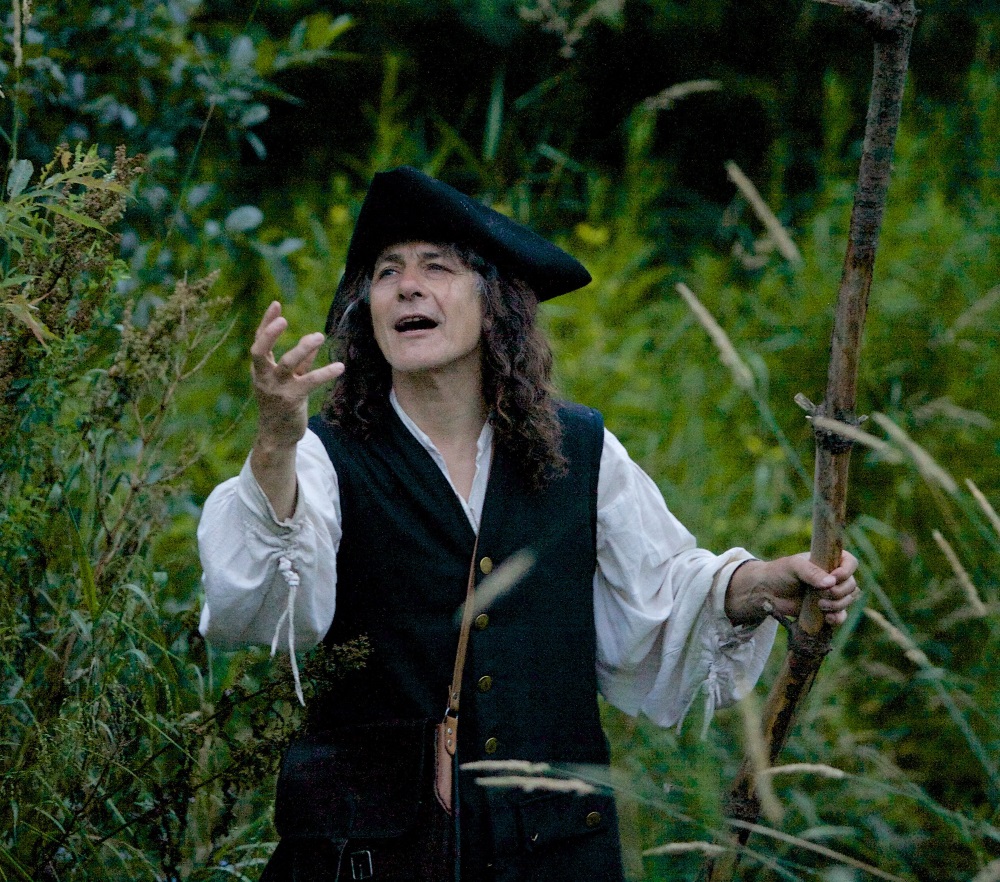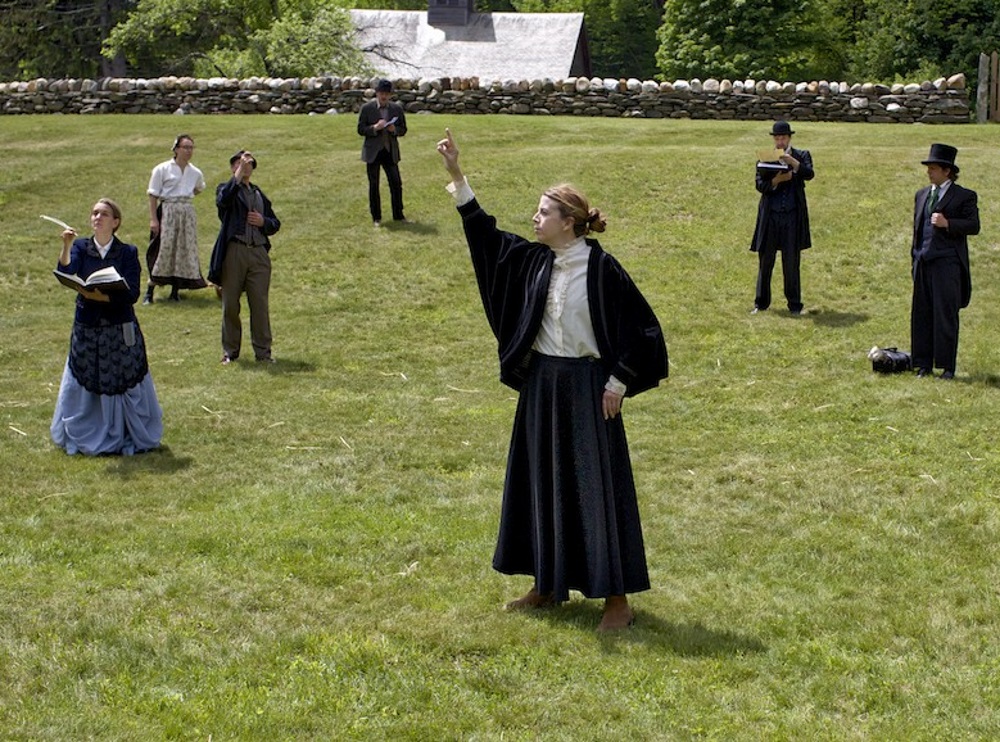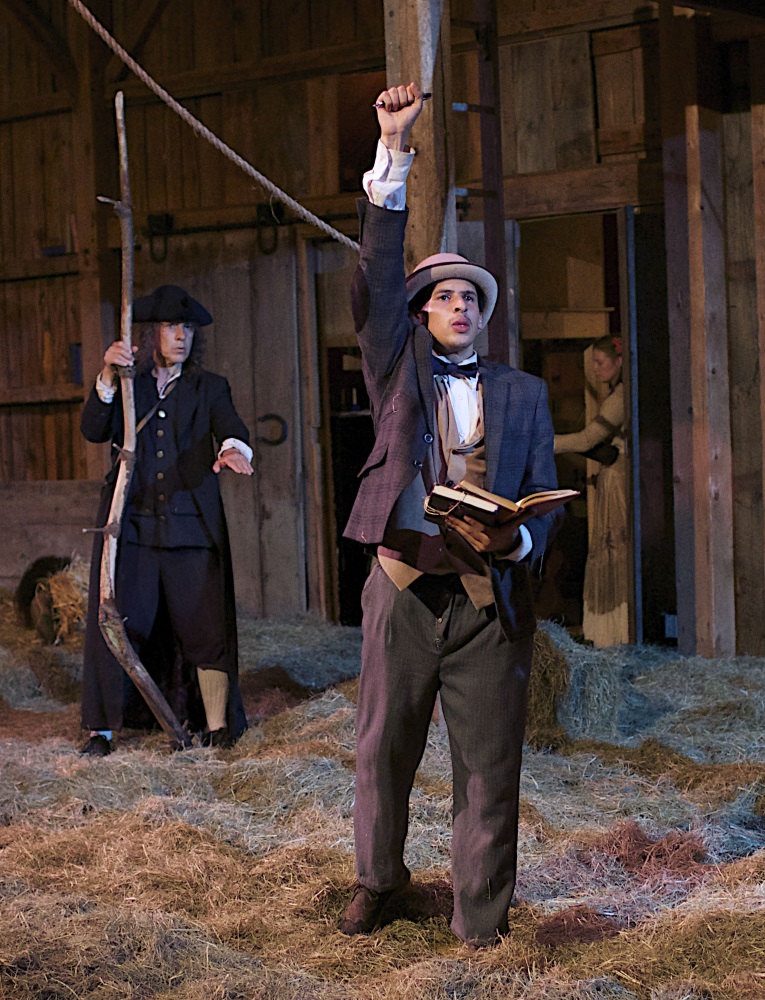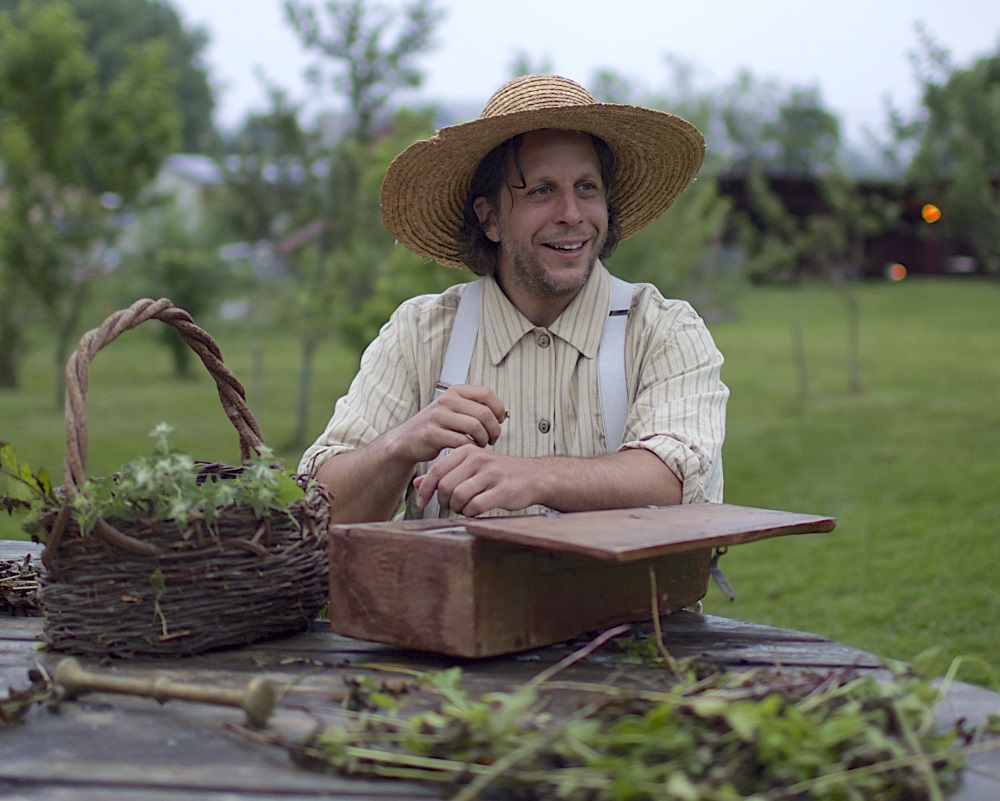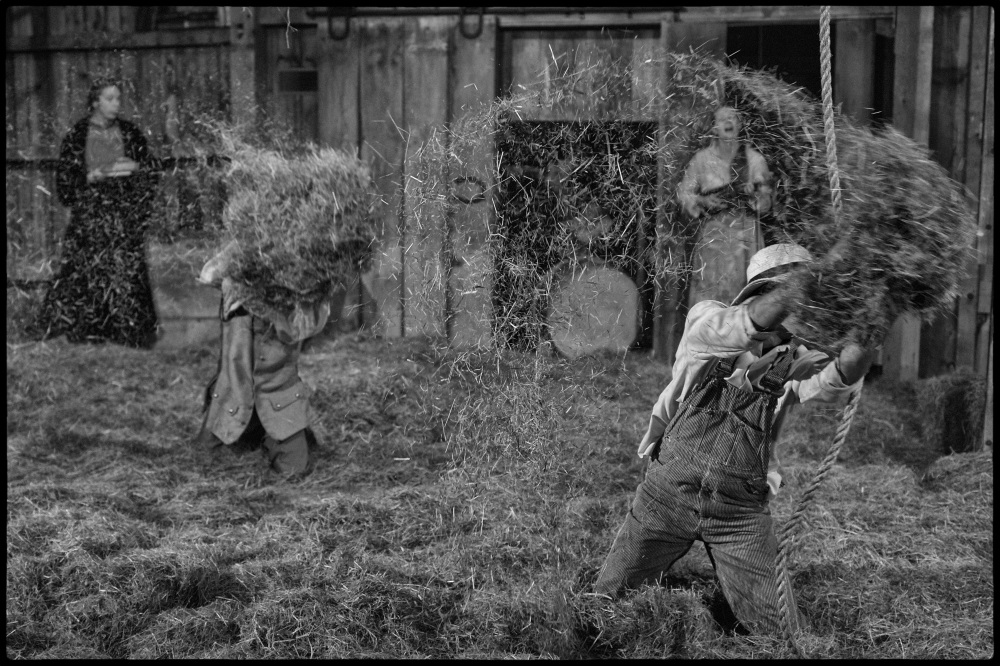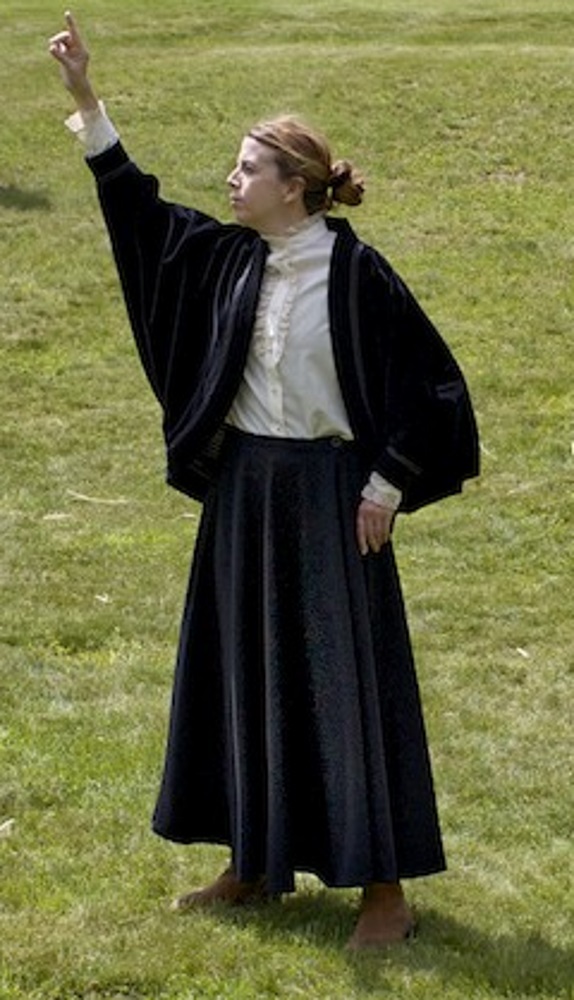A highlight of my summer theater season is always the magical change of pace afforded by Double Edge Theatre’s annual indoor/outdoor performance. This year, that peripatetic spectacle offers its own change of pace. Where previous seasons have given us captivating tales of magic and adventure from world literature and folklore, We The People brings it all back home – literally.
Here, instead of the colorful silks and scarves we may recall from past performances, the cast is dressed in muted homespuns as the fantastical tales give way to real-life stories of people from these parts. The show has a different feel, “a different rhythm,” as a friend put it. It also has different music, replacing the previous international flavor with all-American songs, many of them spirituals and hymns from the folk tradition. The whole package breathes new life into the popular Double Edge formula.
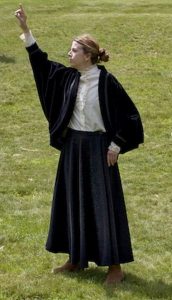 As the performance begins, we the people in the audience are divided into groups, beginning a round-robin visit with four historical personages. On opening night, I went first to a small stage (beside the farm’s chicken coop) occupied by Jennifer Johnson, playing the 19th-century abolitionist and feminist Lucy Stone, born in West Brookfield, Mass. In a long, severe skirt and a starched tone, she tells us how she rebelled against the narrow choices of women in those days, even educated women – basically teaching or marriage.
As the performance begins, we the people in the audience are divided into groups, beginning a round-robin visit with four historical personages. On opening night, I went first to a small stage (beside the farm’s chicken coop) occupied by Jennifer Johnson, playing the 19th-century abolitionist and feminist Lucy Stone, born in West Brookfield, Mass. In a long, severe skirt and a starched tone, she tells us how she rebelled against the narrow choices of women in those days, even educated women – basically teaching or marriage.
“How does one navigate a life of limitation, when one has dreams, when one has ideas?” she asks, her voice rising. In every field of action, “disappointment is the lot of woman. It shall be the business of my life to deepen the disappointment in every woman’s heart until she bows down to it no longer!”
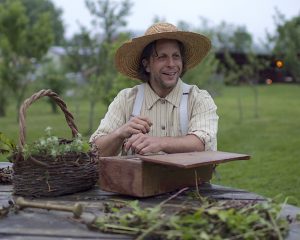 Next, led across a stretch of meadow by a pair of white-faced dancers, we meet Henry Ranney, played by Matthew Glassman. Seated at a large round wooden table, he offers us sprigs of home-grown mint to taste. He’s the grandson of the Ranneys who first established the farm we are traversing tonight. He regales us with his life as a traveling peddler and herbalist, then reads from a letter he is composing to his father. “Times are uncommonly hard in the state this fall.”
Next, led across a stretch of meadow by a pair of white-faced dancers, we meet Henry Ranney, played by Matthew Glassman. Seated at a large round wooden table, he offers us sprigs of home-grown mint to taste. He’s the grandson of the Ranneys who first established the farm we are traversing tonight. He regales us with his life as a traveling peddler and herbalist, then reads from a letter he is composing to his father. “Times are uncommonly hard in the state this fall.”
Wading along a creek on the edge of the property is Carlos Uriona, in a tricorne hat and carrying a sturdy walking stick. He is Nightingale, a whimsical figure based on a man who once lived in Ashfield and was considered a “wizard.” But his words are drawn from Thoreau: “Every man and woman carries a firmament inside…. History is a living weapon in your hand and you have imagined it … a dream of what can be.”
Finally, we enter a room in one of the outbuildings and meet a young, energetic W.E.B. Du Bois (Travis Coe), the intellectual spark for the flame of African-American rights. His daughter is at the piano playing “Swing Low, Sweet Chariot” as he cautions us (with an unavoidable allusion to our own day) “These are dark times. We must all look out for one another. So promise me you will do that.”
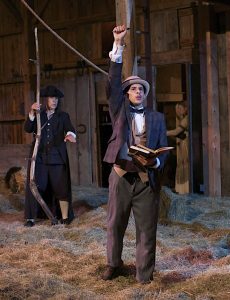 In these summer performances, there’s always a sequence in the company’s large barn, usually featuring seas of undulating fabrics and airborne acrobatics. There are aerial moments here, but most of it is more down to earth, enacted among piles of hay strewn across the floor. Du Bois is halfway up a ladder, remembering a time “I dreamed of flying” – and then of course he does, grasping a rope hanging from the rafters to swing through the air as fragments of text and song float aloft as well.
In these summer performances, there’s always a sequence in the company’s large barn, usually featuring seas of undulating fabrics and airborne acrobatics. There are aerial moments here, but most of it is more down to earth, enacted among piles of hay strewn across the floor. Du Bois is halfway up a ladder, remembering a time “I dreamed of flying” – and then of course he does, grasping a rope hanging from the rafters to swing through the air as fragments of text and song float aloft as well.
The finale, as ever, takes place beside the pond, where Nightingale paddles a skiff and a fire burns and fades in a cleft of boulders. Then a singing, torchlit procession winds up the hill and into the night.
The final week of We The People, August 1-6, is sold out. To join the waitlist, go to tickets@doubleedgetheatre.org or call 413-628-0277.
Photos by Bill Hughes and Jeffrey Lewis (see gallery above)
If you’d like to be notified of future posts, email StageStruck@crocker.com

